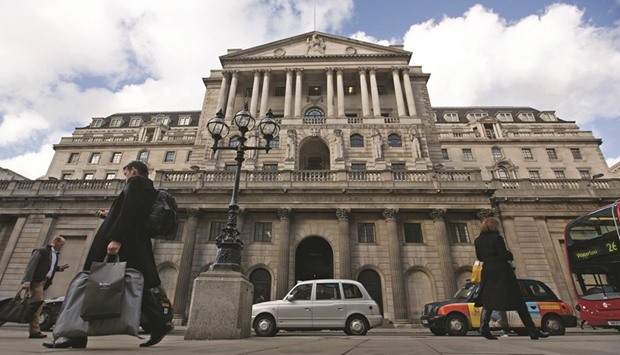The Bank of England’s (BoE) corporate-bond purchase programme, announced on Thursday, has been met by scepticism from some credit market analysts, who say precedents across the Channel don’t bode well for the programme’s ability to stimulate issuance.
While credit market observers reckon the BoE’s corporate-bond programme will engineer a modest reduction in borrowing costs across the sterling bond market as a whole, they say the programme could exacerbate a shortage of liquidity and crowd out private investors. “The BoE didn’t quite kitchen sink it, but they have given it a mighty shot in the arm,” Suki Mann, an independent credit strategist, wrote. “It’s more of the same medicine though.
It didn’t work before and we don’t believe it will work again.” Mann, a former head of credit strategy at UBS, said the BoE’s corporate-bond purchase programme is counter-productive because it reduces market liquidity by expanding the purchasing power of a large and price-insensitive buyer in the market: “They’re not fixing this market, instead they are going to annoy and frustrate investors just like the ECB are doing in the euro-debt market,” he said.
While the bank reduced borrowing costs across the board when it cut interest rates for the first time in seven years, analysts at HSBC Bank downplayed the likely efficacy of the corporate bond segment of the BoE’s plan, citing the fact that UK companies are only 29% funded through the bond market.
They also issue more in dollars than in pounds. HSBC fixed-income strategists, led by Steven Major, said in a research report published on Thursday:
“We did see more supply in the eurozone post-corporate- sector purchasing program, but the sterling investment-grade market is in competition with the euro investment-grade market for funding.
It will need to have lower costs and/or better liquidity than euro investment-grade markets to see a higher relative uptick in issuance. These are both unlikely.”
The BoE is targeting £10bn of non-financial corporate paper over an 18-month period in the secondary market, which amounts to around 6% of the £150bn of bonds that are likely to be eligible for purchase. One measure of the BoE’s success will centre on whether it can help to engineer a material rise in primary issuance to stimulate the economy.
While market conditions are now more hospitable for primary-market supply in sterling, sales have fallen over the past four years, partly driven by pension reform and competition posed by Brexit is even bad news for Britain’s corporate-bond market”.
Barclays credit strategist Zoso Davies reckons the real-economy benefit from BoE corporate bond plan (called the Corporate Bond Purchase Scheme) will be modest when compared with credit-easing measures. In a research note on Thursday, Davies wrote:
“The BoE expects 10x greater use of the Term Funding Scheme (TFS) than the CBPS, supporting our prior argument that funding for lending type schemes are more effective in providing credit to the UK economy. However, the Bank appears to take the view that CBSP can transfer corporate loans into the bond market creating additional lending capacity within the UK’s banking system.”
The HSBC analysts also say evidence from other countries with QE, particularly Japan, shows pushing domestic fixed-income securities to “uninvestable levels” encourages capital flight out of the country. The latter prospect means US investment- grade markets, which offer higher real yields compared with the UK and eurozone, might be the real winner from the BoE’s intervention, wrote analysts at Bank of America Corp, in a research note on Friday.
“Around 45% of the global fixed income market is now “compromised” by central bank buying,” their analysts led by Barnaby Martin said in the note. The true winners of the Bank of England’s stimulus will therefore be debt markets that are relatively untouched by central bank intervention, and “investor money will ultimately gravitate here in search of better liquidity and better value.” They said that US investment bonds stand to benefit from the BoE’s policy.
ING analysts led by Jeroen van den Broek expect the BoE’s ‘crowding out’ effect to benefit senior bank bonds and high- yield debt, both of which have been excluded from the BoE’s program. Early signs from the markets (bond yields) bear out the analysts’ hypothesis:
Carney and Deputy Governor Ben Broadbent said they expect the stimulus package announced on Thursday to provide support for the economy in the wake of the UK’s referendum to leave the EU.

Pedestrians and taxi cabs pass the Bank of England headquarters in London. The BoE’s corporate-bond purchase programme, announced on Thursday, has been met by scepticism from some credit market analysts.
